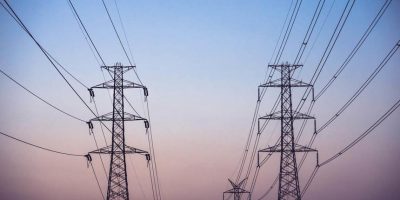Expect improved electricity supply from July 1 – NERC tells Nigerians
The Nigerian Electricity Regulatory Commission (NERC) says Nigerians will experience improved electricity supply from July 1.
Sanusi Garba, chairman, NERC, gave the assurance on Wednesday at an interactive session with journalists after the second Nigerian Electricity Supply Industry (NESI) meeting which was held in Lagos.
Present at the meeting were top officials of NERC, Transmission Company of Nigeria (TCN), generation companies as well electricity distribution companies.
Garba said NERC had facilitated a contractual agreement between the GenCos, TCN, and the 11 DisCos that would guarantee the generation, transmission and distribution of an average of 5,000MW of electricity daily to customers, effective July 1.
“Yes, we have had discussions with the gas suppliers within our regulatory space. We have them on board to ensure that once we made the commercial requirements, gas was going to flow,” Garba said.
“Now, for transmission we have heard of figures well in excess of 5,000MW and clearly TCN will be able to deliver that.
“I recall clearly that in March last year we had 5,400MW. So, it means it is quite possible based on signed commitments.”
Garba said all the stakeholders across the value chain had obligations and there would be penalties if they failed to deliver.
He explained that in a situation where GenCos are able to deliver 5,000MW but TCN is unable to do so, they would pay the penalty to the generation company.
“And whenever the power is available and DisCos do not take the power; then they will pay liquidated damages that will compensate other market participants.
“We might not have 24/7 power supply from July 1 but Nigerians will see the trajectory because the target is to have an average of 5,000MW daily for transmission and distribution.”
Speaking on blackouts in the country, Garba blamed the recent collapse of the national grid on inadequate gas supply as well as vandalism.
He said the challenges in the sector have gone beyond weak infrastructure to include external factors like vandalism.
“The challenges of today are very clear. In the past, it used to be weak infrastructure and so on and so forth. Now we have certain external factors contributing to these events,” Garba said.
“Obviously, it’s not common around the world to see people coming down, pulling down transmission towers for no reason; or blowing up crude oil lines.
“In a number of instances, most of the gas we have today is associated gas and because of that when crude lines are disrupted it also affects the supply of gas to the thermal stations.”
Garba lauded the federal government and the Central Bank of Nigeria (CBN) for the interventions in the power sector, adding that the country would soon begin seeing the positive impact of the investments.
Also speaking, Nathan Shatti, commissioner, finance and management service, NERC, said the commission will begin the second phase (Phase One) of the National Mass Metering Programme (NMMP) in August 2022.
The regulator also said it received bids from 45 local meter manufacturers to participate in the programme and was currently reviewing them.
Shatti said the procurement process for the second phase started in early 2022, adding that NERC was currently reviewing the capacity of the manufacturers.
“Our target is to install four million meters for customers. From our experience in phase zero, we want to make sure that the manufacturers can deliver before allocation is made,” he said.
“I am sure that we will be able to finish the assessment by the end of this month and it will be finalised by the Procurement Implementation Unit.
“We are hoping that before the end of August, we will begin to see meters from our local manufacturers going to the electricity distribution companies and then to end-user customers.”


